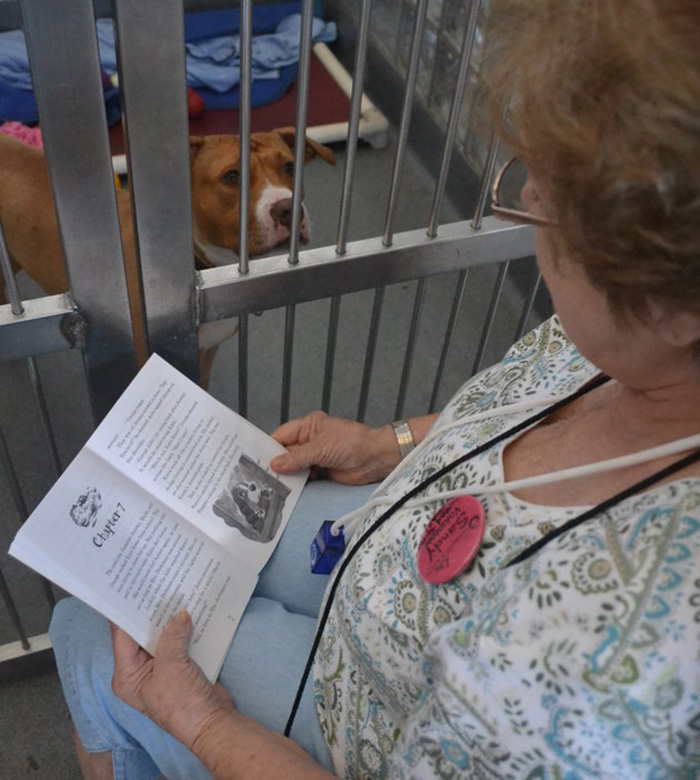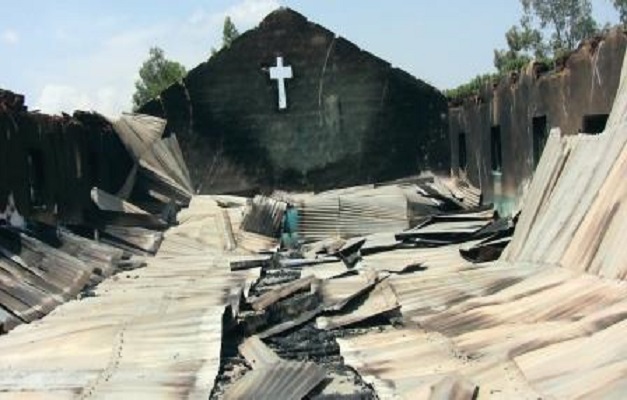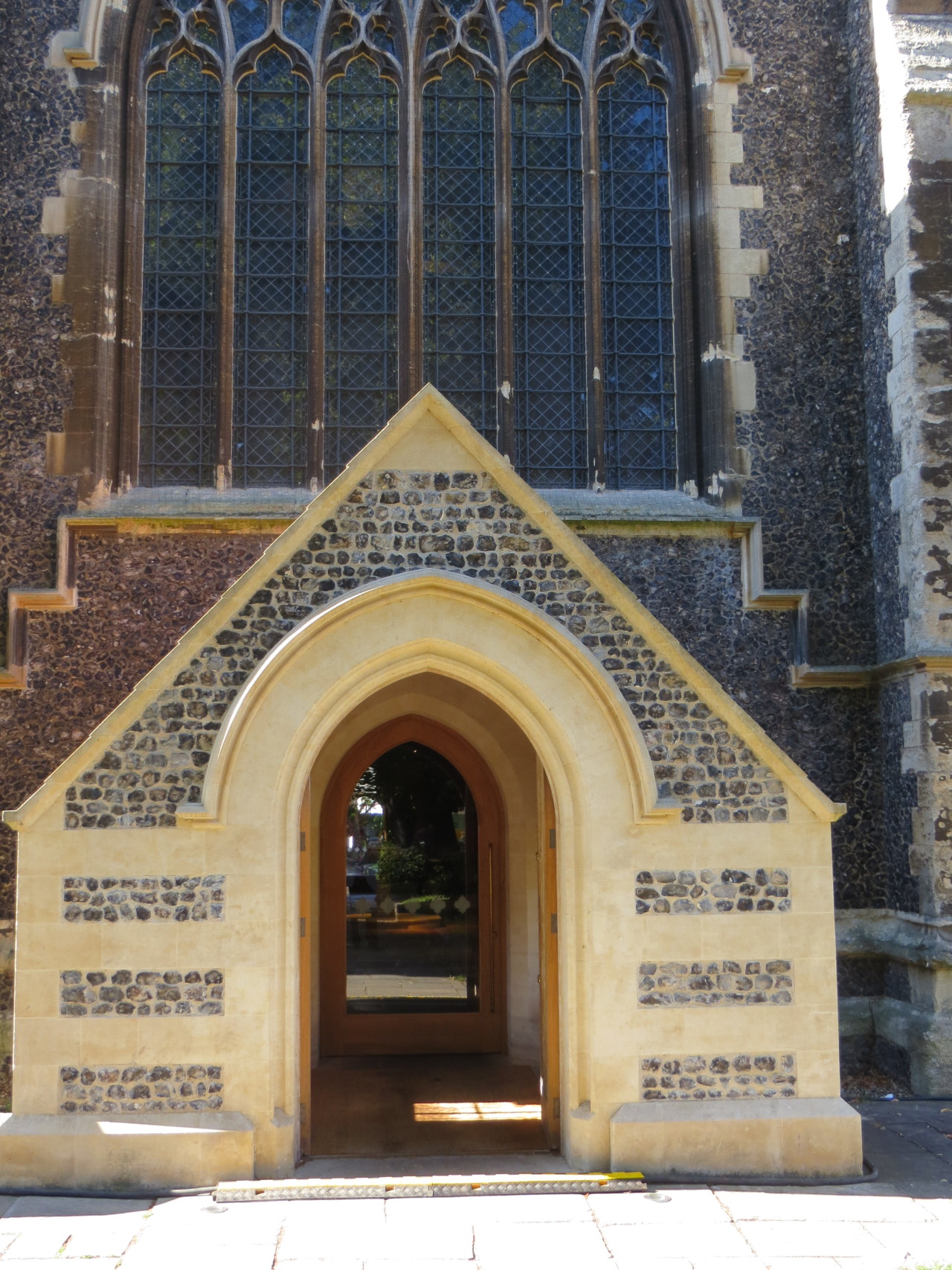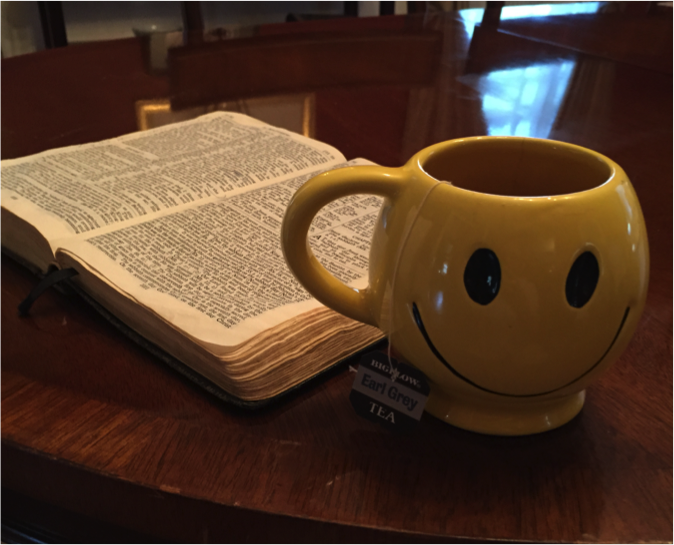Ten articles you may (or may not) find interesting…
1. A small N.C. church reaches out in big ways

They are bigger than us – 70 members but not that much bigger. The major difference is their town is bigger:
- “On Tuesdays and Thursdays, the parish hall bustles with up to a dozen children and a handful of adult church volunteers, who help them with their homework in math and English.
- “Soon, the church will plow a 10,000-square-foot plot of land in the rear of the sanctuary to prepare the soil for next spring’s planting season.
- “Now, Advent is beginning, and the church will adopt several needy families and shower them with gifts on Christmas.
- ‘North of town, a retired telephone marketer and church member has been baking cakes for every foster child in the county for the past 10 years.”
2. Woman reads to dogs, returning the love

“There are small ways to make a difference and this lady from the North Shore in Pittsburgh is the perfect example… The dogs won’t understand what she’s reading, but hearing a calm human voice has proven to comfort shelter animals before. This is a nice reminder that there are other ways besides adoption to support animals who have forgotten what it means to be loved. “
There is a related article here about children reading to cats.
3. Black churches bucking the trend of decline

This article takes place close to us in Alexandria. “At Alfred Street Baptist Church, the pews start to fill more than half an hour before the service begins. So many people attend, church leaders are now asking people to limit their attendance to one service…There are numerous reasons why some black churches retain their members, but, most prominently, the church has played a historic role in black life that has fostered a continuing strong black Protestant identity. Members and visitors at Alfred Street say the church’s holistic ministry — the preaching, the singing and the community outreach — are what draw them in and keep them there.”
4. This May Be Our Last Communion

There have been tragic attacks on American churches but I don’t know any American Christians who go to church consciously thinking, “I may die today, but I am going to church; I don’t know what will happen, but Jesus is with me.” This is the case in Nigeria. Read about their struggles with the by jihadist terrorist group Boko Haram.
5. Four Decades of the Refugee Crisis in 3 minutes

From the Washington Post – “What does it sound like if you turn four decades of global refugee movement into a three-minute music video? Brian Foo, who calls himself a ‘data-driven DJ,’ recently answered this question: quiet at first, but loud and alarming at the end. The New York City-based researcher used refugee data from the United Nations from 1975 to 2012 to create the audio visualization.”
6. Party Of 1: We Are Eating A Lot Of Meals Alone

An NPR article. “But a lot of us are lone wolves these days when it comes to dining. New research finds 46 percent of adult eating occasions — that’s meals and snacks — are undertaken alone.”
“One of the drivers of solo-eating is the shift towards more single-person households. According to Census Bureau data, the proportion of one-person American households increased from 17 percent in 1970 to 27 percent in 2012.”
“But it’s a problem when it comes to the elderly living alone or in assisted living. They’re vulnerable to malnutrition for lots of reasons. They’re too frail to open food packages or screw off tops, they’re alone or depressed, they’ve lost their appetites, or they’re not motivated to cook a meal for one.”
Some choose to eat alone but others are alone. Can the church do anything about this to ensure people have the right nutrition?
7. Church Doors into the Community
 What do the placement of doors say about us ?
What do the placement of doors say about us ?
All Saints’, Kingston in England has stood in the center of the town for centuries. To show how old it is two Saxon kings were crowned there!
“Historically, one main door, the west one, leads down to the River Thames, the principal means of transport; and the other, the south door, to the ancient Kingston market place where all the business was transacted. As Kingston has developed in the last century and this one, the Church has been surrounded by a vast commercial shopping centre, and the town now has a major, secular university, as well as a substantial night club scene. Much of this, especially the commercial shopping centre, is on the north side of the Church. In recent years All Saints’ has undergone some major renovation work including opening up the north door, and thus direct access to the many activities of the town taking place on that side of the Church and the vast number of people who walk by on a regular basis. For me this has been both a symbolic and practical sign of the Church’s engagement with the community and context in which it is set.”
“All Saints’ has many casual visitors and, since 2003, has offered a ‘Listening’ service in which anyone can share whatever is concerning or troubling them. It is a fine example of pastoral care in action.
How do we better open our doors to Port Royal and engage the residents ?
8. Remembering the remarkable life of Brother Roger, Taizé community

10 years ago the founder of this community was murdered in a service. Brother Roger founded the community of brothers known as Taizé in France that gradually grew into the monastic, ecumenical community that it is today consisting of over a hundred brothers from around the world. How did they respond? “In a world that is hyper-militarized, the brothers modeled a different response – one of trust, prayerfulness and compassion in a desperately wounded world. Taizé continues to organize what is called a “Pilgrimage of Trust” in different cities around the world each year where thousands of pilgrims are welcomed into people’s homes and churches.” Taize music is sung in churches throughout the year, including St. Peter’s.
9. Jesus said “I am the Good Shepherd” (John 10:11).Here is how to learn to become a real shepherd

From Spain. “From 1982 to 2009, the number of sheep farms in Catalonia almost halved, from 3,964 to 2,085, according to the most recent census.” Shepherds are getting old. Here is an innovative approach to restocking the supply of shepherds. NY Times focuses on one of four schools in Spain that are organized to do just that.
10. Who are we as Episcopalians ?

This week there have been at least two efforts to define Episcopalians and dispel misonceptions. Here is one from Laurie Brock, rector of St. Michael the Archangel Episcopal Church in Lexington, Kentucky. In response Father Kevin Morris, Rector of The Church of The Ascension in Rockville Centre, NY. wrote this alternative list spotlighting clergy’s role in the misperceptions
Somewhat, in jest, here are the late Robin Williams “Top 10 reasons to be an Episcopalian” (he was Episcopalian) :
10. No snake handling. 9. You can believe in dinosaurs. 8. Male and female God created them; male and female we ordain them. 7. You don’t have to check your brains at the door. 6. Pew aerobics. 5. Church year is color-coded. 4. Free wine on Sunday. 3. All of the pageantry – none of the guilt. (At one time he said Episcopalianism was “Catholic light: half the religion, half the guilt.” 2. You don’t have to know how to swim to get baptized.
And the Number One reason to be an Episcopalian:
1. No matter what you believe, there’s bound to be at least one other Episcopalian who agrees with you.
